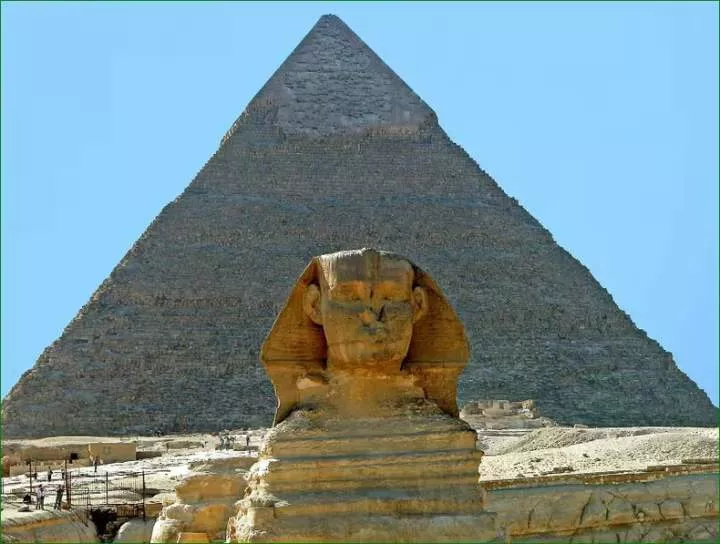
The majestic pyramids of Giza stand as enduring testaments to ancient Egyptian civilization. Yet, for all their grandeur, they are curiously absent from the narrative of the Old Testament, the Hebrew Bible's first section. This omission can be surprising, especially considering the Israelites' time in Egypt is a central theme. So, why are these iconic structures silent in the biblical text?
There are several key factors at play:
-
Chronological Mismatch: The pyramids were primarily built during the Old Kingdom (2686-2181 BCE), a period predating the events recounted in the Old Testament by over a thousand years. By the time the Israelites are believed to have been in Egypt (around the 13th century BCE), the pyramid-building era was long gone. The biblical focus is on the Israelites' experiences in Egypt, not on its ancient wonders.
Focus on the Israelites: The Old Testament prioritizes the story of the Israelites, their relationship with God, and their journey towards becoming a nation. It's not a comprehensive history of Egypt. The pyramids, while impressive, wouldn't have directly served this narrative purpose. The Bible mentions specific Egyptian elements relevant to the Israelites, like the Nile River and brick-making (Exodus 1:11), but grand tombs wouldn't have factored in.
Theological Concerns: The pyramids were intricately linked to Egyptian pharaohs' divinity and their perceived right to rule. The Old Testament, on the other hand, emphasizes monotheism - the belief in one God. Mentioning these pharaonic monuments might have muddied the waters by acknowledging their claims of godhood.
Perspective and Purpose: The biblical text is a compilation of various traditions and writings, passed down over generations. The focus was on religious teachings, laws, and historical events relevant to the Israelites. Describing architectural marvels wasn't a primary concern. The pyramids might have been simply considered part of the landscape, not requiring specific mention.
It's important to note that the Bible does use the Hebrew term "migdol" (Strong's Concordance H4024), which can refer to towers or fortified structures. Some scholars speculate this could indirectly allude to the pyramids, but there's no definitive evidence.

The pyramids were intricately linked to Egyptian pharaohs' divinity and their perceived right to rule
Here's another interesting angle: the Bible mentions brick-making by the Israelites as forced labor for Pharaoh (Exodus 1:11). This could point towards the construction of royal or public buildings, not necessarily pyramids.
Beyond the Omission
The absence of the pyramids doesn't diminish the historical significance of either the biblical narrative or the Egyptian wonders. They represent different aspects of the past. The Bible offers a theological and historical account centered on the Israelites, while the pyramids stand as silent sentinels to a bygone era's engineering prowess and religious beliefs.


















Comments